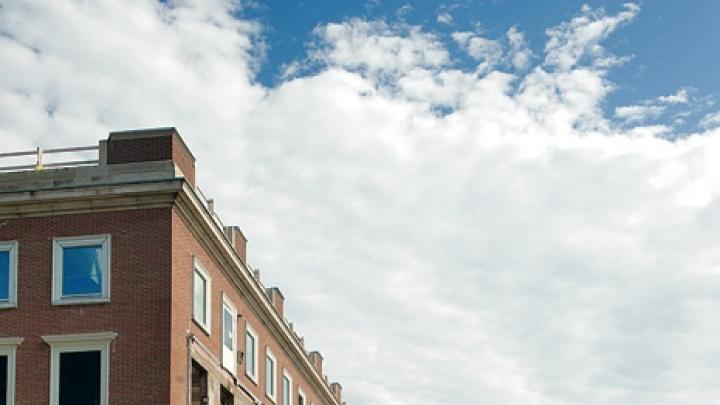Interior demolition of the Fogg Art Museum proceeded during the early summer, leaving carefully sorted rubble ready for recycling, like the artfully arrayed metal at left. As the 1991 Werner Otto Hall (former home to the Busch-Reisinger Museum and Fine Arts Library) was razed, previously connected windows and passageways were shored up (and that doorway on the upper left of the Fogg structure became a dysfunctional exit). Decorative stonework was removed piece by piece and stored off-site, for later restoration.
Thereafter, the construction crews began preparing to excavate around the existing building—a delicate matter as the Fogg itself (shown above, along its Quincy Street entrance) and the sweeping Prescott Street ramp from Le Corbusier’s Carpenter Center had to be shored up and protected from damage by heavy equipment. New subsurface spaces and a Prescott Street entrance will emerge in the reconfigured museum complex, scheduled for completion in 2013. Regular photographic updates of the work in progress are available at harvardmag.com/sidewalk-superintendent.










